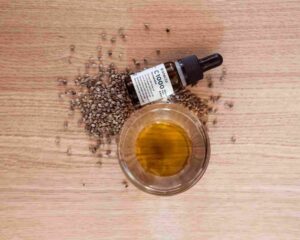Does the future of CBD look sweet for the drinks sector?
Does the future of CBD look sweet for the drinks sector?
Holly Finnegan, our Regulatory Affairs Advisor looks at the fast-growing CBD market, the complicated regulatory situation and lack of labeling enforcement surrounding use of the ingredient.

The CBD market is now one of the fastest growing well-being product categories in the UK, worth more than the UK vitamin C and D markets combined and is expected to be worth £1 billion by 2025. Cannabinoids (CBD) have gained consumer interest mainly from the promising clinical research into the treatment of diseases and possible health benefits and with the launch of the first CBD prescription medicines. Many consumers have been quick to extrapolate the findings of such research to high street CBD products, influenced by labels bearing (unauthorised) health claims.
With the proliferation of cannabidiol (CBD) and hemp-based products across the UK market, from CBD infused croissants to coffee boasting supposed “health benefits”, it’s clear to see that consumers are hungry (and thirsty) for a taste of what these cannabis derived ingredients can offer. The rapid growth of this market has stemmed in part from the change to the novel food status of CBD back in 2017, bringing opportunity as CBD became authorised for use as an ingredient. Many start-up enterprises quickly came to market with offerings of CBD products including supplements. But with an ever-changing and complex regulatory landscape, does the future of the CBD market look sweet for the drinks sector?
Within the US, the drinks market is the next big thing for the application of CBD, with multi-billion-dollar investments being poured into the development of CBD infused alcoholic and non-alcoholic beverages. Unlike other sectors, the US and Canadian drinks markets have seen investments from big names such as Constellation brands, AB InBev, Coca Cola and Pepsico. Keeping a close eye on the US market, UK drink producers are slowly beginning to trickle into the market, driven by smaller start-up enterprises which have been leading the UK CBD market across many other product categories, attracting consumers to sweeter flavour profiles which mask the earthy, bitter taste provided by oil and supplement formats.
Novel food classification – a complicated regulatory situation
In January 2019, the European Food Safety Authority (EFSA) re-classified CBD as a novel food, meaning that the use of CBD is unauthorised unless manufacturers can provide enough evidence to prove the not-novel status and safety of CBD as an ingredient. Within the UK, the Food Standards Agency (FSA) recently released a statement requiring businesses to submit fully validated novel food authorisation applications by 31 March 2021. After this date, only products for which the FSA has a valid application will be allowed to remain on the market. Novel food applications require significant resources, not only financial but regulatory expertise too, which may be challenging for the many start-up businesses operating in the market. What’s more, a novel food application can take up to 9 months, with no guarantee of a positive outcome.
The current novel food applications which have been submitted to EFSA are for use in food supplements only, which (if approved) would not be applicable to beverages. The situation is muddied further by BREXIT- as we have now left the EU, there is a risk that any applications for beverages would not be applicable to the UK market if conclusions are made after the transition period. For this reason, businesses are being encouraged to submit applications to the FSA in addition to EFSA to ensure a smoother transition process, however this approach requires more resources, for another lengthy, costly (and new) process.
For now, UK businesses may continue to sell pre-existing CBD products before 31 March 2021, provided that the products are safe, labelled correctly and free from THC, or other substances which fall under drugs legislation.
The reality of inaccurate CBD product labeling
There appears to be few products on the market adhering to these rules and a lack of enforcement, leading to a growing emphasis on food safety and public health concerns. In 2019, the Centre for Medicinal Cannabis conducted a test on CBD oils, which revealed one high street pharmacy product contained no cannabinoids at all, whilst 11 contained less than 50% of the stated CBD content. There have also been multiple cases of products containing illegal levels of THC (the psychoactive substance present within CBD) and some extreme cases of products containing the highly addictive, synthetic form of Cannabis, known as ‘Spice’. More recently, The Food Safety Authority of Ireland (FSAI) found that 37% of products tested (sample size= 38) had levels of THC that if consumed at maximum stated dosage, could significantly exceed the daily safe intake limit set by EFSA. Moreover, 41% of products tested contained CBD levels which differed by more than 50% compared to the declared level.
Thus, with a lack of enforcement, regulations and industry standards, it is evident that the CBD marketplace contains products which are either misleading and/or pose risk to consumer health. With more research findings and product withdrawals being announced, consumer trust in this sector may diminish.
What can we expect for the future of CBD and the drinks industry?
The drinks category is gaining momentum with producers and is predicted to be the next biggest category for CBD after food supplements and oils. The investments from big names within the US is a clear sign of this, however we must not lose sight of the fact that the regulatory environment for CBD within the US is a very different story to the UK. Despite the success and exciting opportunities demonstrated by the US CBD beverage market, due to the complicated regulatory situation, the future of CBD does not look so promising for the UK drinks sector; this is made even more challenging by the novel food application process. Currently, the UK CBD drinks market is fairly small in comparison to the confectionery and food supplement sectors, thus it appears that producers are playing a waiting game to see the levels of enforcement being taken on products already on the market.
An alternative opportunity and exciting ingredient for this sector is hemp, which although itself comes with certain regulatory restrictions, EFSA has deemed certain parts of hemp as not novel (only seeds, seed oil, hemp seed flour and defatted hemp seed) and so these parts are deemed as authorised food ingredients. There are already some hemp beverages on the market and there is great potential in this area, provided that producers have an understanding of food labeling regulations to mitigate risks.
Much like the taste of sugar and other sweet ingredients masking the bitterness of CBD, the sweet growth and excitement in this market could be hindered by the bitter, complex regulatory landscape, much of which we can only predict.

My background in Food Science and Marketing means I have a unique combination of commercial creativity and technical food manufacturing experience. My ambition is to bring clarity to the complex world of compliance through the simple and eye-catching communication of Ashbury's services.
Next reads
Revised Guidance in the US Regarding ‘Healthy’ Claims
FDA Regulations for Labeling ‘Gluten-Free’ and ‘Free-From’Foods in the US
Saving Space on US-Bound Labels
Labeling Free-From Foods for the US
Keep up to date with our latest insights
Subscribe to our mailing list to stay in touch with the latest news, insights and updates from Ashbury


